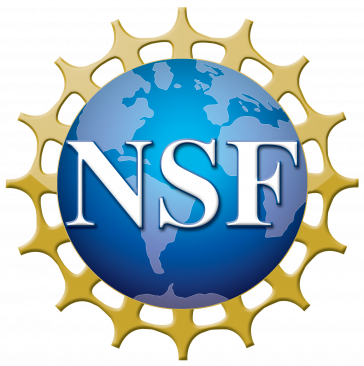2022 CDP Winter Intensive: Professional Skills for Researchers
on Zoom
January 20-21, 2022
Whether you pursue a career in academia, the private sector, government, or a non-profit, your ability to identify your strengths and areas for improvement, and your understanding of effective mentorship, time management, and project management is essential to success in your chosen field.
The RI C-AIM Career Development Program Winter Intensive introduced participants to each of these topics with insights from leaders in a variety of work settings. Throughout these two days, participants built their understanding of leadership objectives and learned how to establish productive relationships with mentors and colleagues and apply this knowledge to their job searches. STEM professionals working in different sectors shared their expertise on effective management styles and how team relationships vary across professional settings and circumstances.
Each Winter Intensive session qualifies for Career Development Certificate credit.
The program is open to Rhode Island’s senior level undergraduates, graduate students and post-doctoral scholars in STEM fields. Attendance at the Summer Intensive sessions satisfies CDP Certificate requirements or electives as noted below.
Agenda
Participants may choose to register for all CDP Winter Intensive sessions or for particular individual sessions. Click here to register.
January 20, 2022
12:00-1:00 p.m.
Understanding Your Individual Development Plan
Cara Mitnick, Director of Professional Development, URI Graduate School
This session satisfies a CDP Certificate requirement.
Creating an Individual Development Plan, or IDP, allows you to set professional development and career planning goals and puts in place an action plan to complete those goals. In generating a unique and “individualized” professional development plan, you will take into account your strengths, interests, and values, while considering what qualifications and skills are necessary for success in your chosen career. Participants must complete an IDP prior to this session (see link below).
Ms. Mitnick, director of professional development for the URI Graduate School, helped participants interpret their IDP results and develop strategies to leverage individual strengths and resources with the goal of exploring career goals more deeply.
Click here to complete REQUIRED steps in advance of this session.
1:15-2:45 p.m.
Fundamentals of Inclusion, Diversity, Equity & Accessibility
Asta Habtemichael, Ph.D. candidate in Oceanography
This session satisfies a CDP Certificate requirement.
This session explored the many considerations of inclusion, diversity, equity and accessibility (IDEA) that are essential to our shared successes as students, researchers, and future employees. During the workshop, participants moved beyond theory to learn practical tools to create working environments that are inclusive by advocating for themselves and peers, championing equity, and learning how to influence change from any level of an organization. Participants were invited to come with an open mind and a willingness to actively participate in small group discussions. Mr. Habtemichael, who frequently leads workshops and facilitates discussions about IDEA as part of the URI Diversity & Inclusion Badge Program, led this discussion.
3:00-4:30 p.m.
Insights on Project Management
Panelists:
Zahra Madani – Project Manager, Gel4Med, Inc.
Kersey Sturdivant – Principal Scientist, INSPIRE Environmental
Catalina Martinez – Regional Program Manager, NOAA Office of Ocean Exploration and Research
This session satisfies a CDP Certificate elective.
Project managers in STEM must balance strategic goals, budgets, personnel management, timelines and reporting. This panel featured researchers working in varied non-academic sectors who will share their insights on what skills, tools, and competencies go into successful project management.
January 21, 2022
12:00-1:00 p.m.
Applying Neuroscience Research for Effective Time Management
David Badre, Professor, Brown University
This session satisfies a CDP Certificate requirement.
Growing workloads and more demands on our time can leave us feeling overwhelmed. Developing effective time management skills is essential to career success, whether you’re in graduate school or in a professional work environment.
In this presentation, Badre discussed strategies for managing the multiple, often hard, tasks that are part of a career in STEM. He introduced cognitive neuroscience research on a function called cognitive control, which refers to the mechanisms by which the brain connects our goals and plans to our actions. Participants were invited to consider what the science of cognitive control has taught us about time management and how we coordinate and perform multiple, difficult tasks.
1:15-3:15 p.m.
How to Develop Effective Mentoring Relationships
Renetta Garrison Tull, Vice Chancellor of Diversity, Equity & Inclusion at the University of California, Davis
This session satisfies a CDP Certificate requirement.
Effective mentorship requires effort on the parts of both the mentor and mentee. There is a great deal of research on how to create and sustain effective mentoring relationships. This session began with a presentation by and discussion with Dr. Renetta Garrison Tull, Vice Chancellor of Diversity, Equity & Inclusion at the University of California, Davis, and a member of the National Academies committee on Effective Mentoring in STEM. Following this discussion, participants split into breakout sessions with facilitators to talk about their experiences with mentoring and explore some scenarios designed to help them think through own approaches to challenging situations as a mentor or mentee.
3:30-4:45 p.m.
Conducting Ethical Peer Review
Rebecca W. Walton, Utah State University
This session satisfies a CDP Certificate requirement.
Peer review takes place in countless ways: for manuscripts, proposals, promotion, and awards. While this practice is an important aspect of STEM careers, it’s also prone to bias. It’s essential, then, to learn peer review practices that are ethical, anti-racist, and provide meaningful input. This session introduced some techniques and considerations for improving your approach to peer review.


